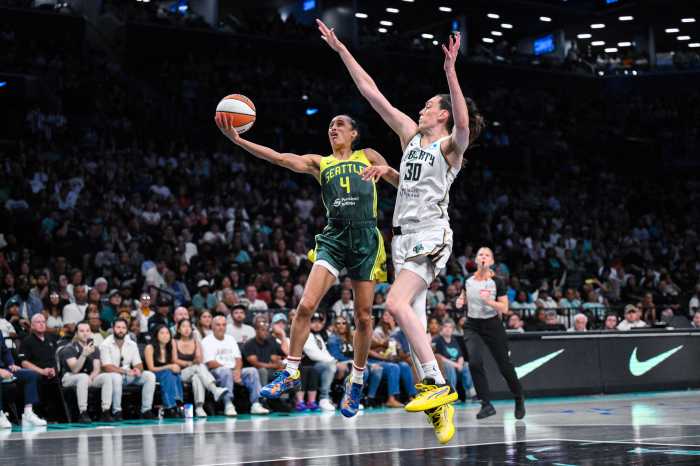Just over 100 years ago, Jamaica resident Elizabeth Cisco challenged the state of New York and demanded that her children be permitted to attend the Jamaica school that is now Jamaica High School. Thanks to her efforts and sacrifice, former President Theodore Roosevelt desegregated schools throughout New York state and New Yorkers were given access to free and equal education.
Today, it is Jamaica High that is experiencing unequal treatment, not the students at neighboring schools. Jamaica HS should not be closed and for over a year the students, faculty and community have been pleading that the city give the school treatment equal to the treatment it gives to the small schools the city Department of Education favors.
At a hearing last week, students spoke of exams not being given as scheduled because school copiers were broken or lacked paper. They spoke of needing to reuse Scantron test forms. They spoke of profoundly oversized classes and teachers being removed from the school because of budget cuts. They spoke of Advanced Placement courses and the labs for AP science courses being eliminated. The spoke of being scheduled for lunch at 2 p.m. In spite of all these inadequate conditions, graduation rates and test scores have increased.
Jamaica High teachers are dedicated to their students and work to see them achieve success. The Educational Impact Statement claims Jamaica HS has trouble retaining good teachers, but the only trouble Jamaica High has retaining teachers is that they are excessed and forced out of the school by budgetary concerns. The quality of Jamaica HS teachers is, ironically, noted in the proposal to create a new, small school that claims to be modeled on the Gateway Institute.
The wonderful teachers who serve Jamaica High’s Gateway students so well, according to the proposal, are the same teachers who teach zoned Jamaica HS students. We asked repeatedly last year that the Gateway, Finance and Law programs be enlarged and promoted — not that any of them become a stand-alone school. Instead of enhancing those more elite programs, Finance has been eliminated and there is no Gateway program for ninth-graders. Increasing any of those programs, and letting middle-school students know that great programs exist at Jamaica High, would be a wonderful first step to returning Jamaica HS to its glory days as one of the best schools in the country. That return is possible if the city commits to helping the school.
I have felt the city’s antipathy toward Jamaica High since I chose to attend this school in the 1990s. Somehow, between 1985, when it was one of the best schools in the nation, and 1991, the school’s reputation had undeservedly plummeted. How such a dramatic change could happen in such a short time I do not know, but I was repeatedly told I would be assaulted if I attended the school. Instead, I was embraced and received a marvelous education.
Still, outsiders did not believe what I knew was true — that Jamaica HS was a great school. Time and again, I hear current students tell the same story: We were warned not to attend, but we have learned that Jamaica High is a marvelous and special place. I knew when I graduated in 1994 that the city would ultimately attempt to close the school — Andrew Jackson was entering phase-out that year — and I knew it did not deserve the treatment it received any more than it does now.
The fight against closure is one we fought, lost and won in court a year ago. The “justifications” in the EIS seem even more ludicrous than they did last year. To close a school because students did not choose it first on their applications when the school was slated for closure? To close a school because students chose to attend other schools after receiving letters from the DOE encouraging them not to attend Jamaica High? The city has done everything in its power to make Jamaica HS suffer and it blames Jamaica High.
Jamaica HS still can be a great school with the right resources and without the city’s condemnation, and Jamaica High should remain open as a zoned, comprehensive high school. The students within it must, however, receive all the benefits the students in the co-located schools receive. The current climate within the building is that of separate and unequal conditions — not entirely unlike what Cisco protested — and through no fault of the teachers or students. The city has the obligation to provide the means for the school to thrive rather than condemn it.
Jamaica HS has had 119 years of history; we want 119 more.
Kathleen Forrestal
Jamaica
































